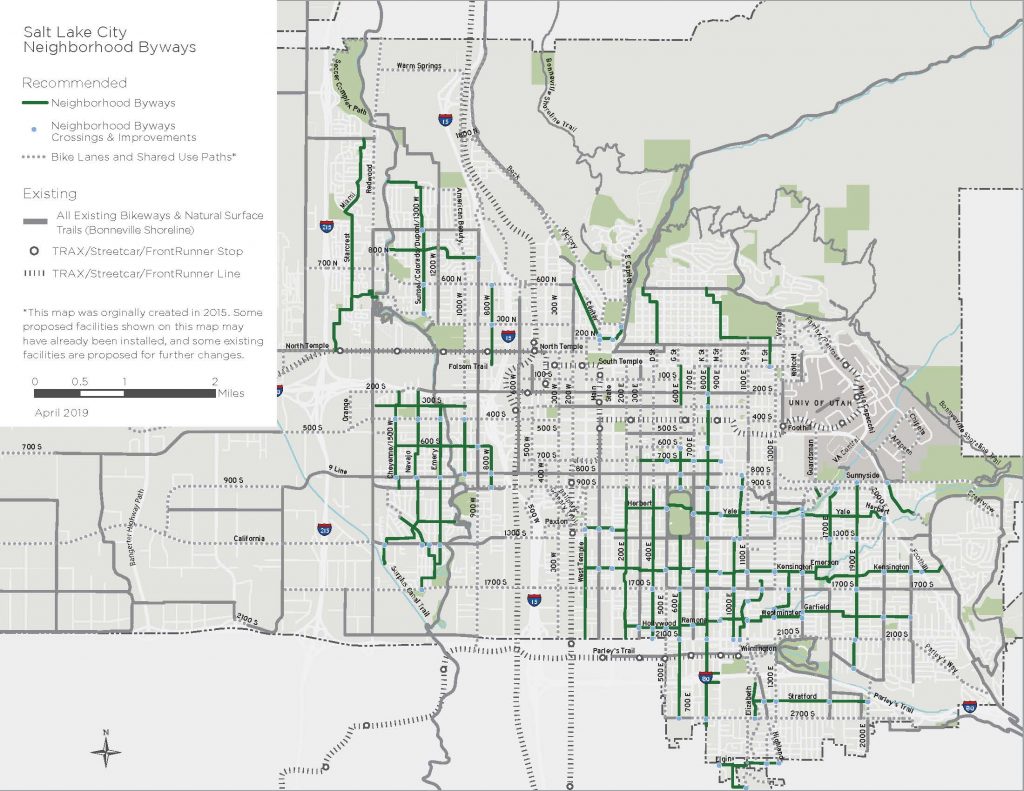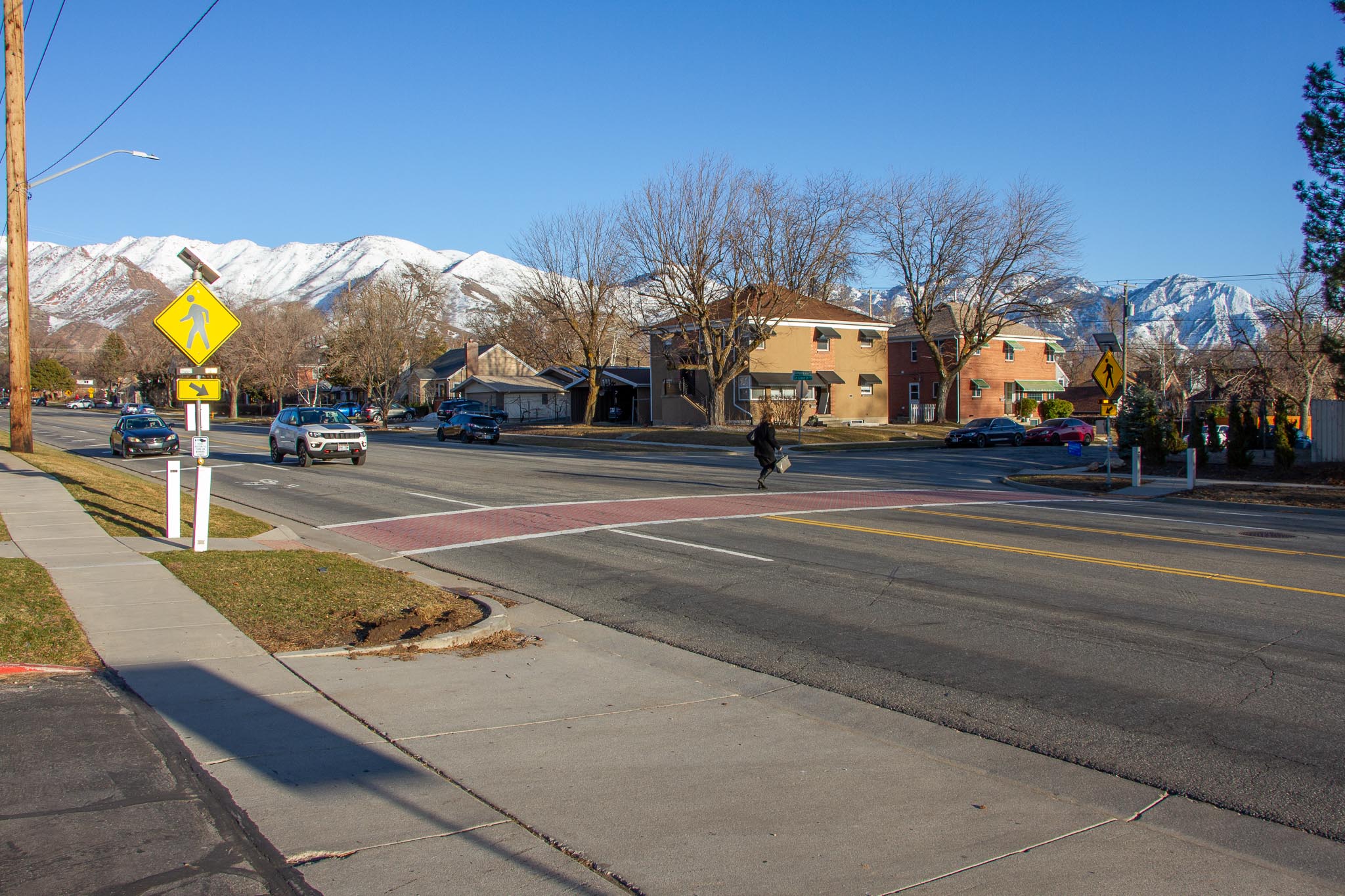
Project update (November 2023): The project team is finalizing reports on the existing conditions and community feedback collected during the initial pre-design phase of the project. When available, that information will be posted here, and project designs will be made available for public review and comment. We listened to the community’s feedback and have updated the name of this Neighborhood Byway from Sugar House to the U to Kensington to Sunnyside to more accurately describe the route. Sign up for our email newsletter or check back for future project updates.
Project Overview
Salt Lake City is making it better for people of all ages and abilities to walk, bicycle, and roll along neighborhood streets by implementing Neighborhood Byways. Neighborhood Byways create pleasant and convenient routes for people using active modes of transportation by encouraging safe travel speeds, discouraging cut-through vehicle traffic, providing safe crossings of busy streets, and connecting people to destinations. Salt Lake City is developing a network of these routes, which can be viewed on the Neighborhood Byways page. The Kensington to Sunnyside Byway creates a comfortable connection from Sunnyside Park to the Wasatch Hollow neighborhood.
Project Timeline
Fall 2023 – Summer 2024: Finalize concept designs
Fall 2024 (tentative): Begin final design
This project is only funded through the design phase.
Neighborhood Byways FAQ
What is a Neighborhood Byway?
Neighborhood Byways create pleasant and convenient routes for walking, bicycling, rolling, and other active modes of transportation by encouraging safe travel speeds, discouraging cut-through vehicle traffic, providing safe crossings of busy streets, and connecting people to destinations.
How is a street chosen to be a Neighborhood Byway?
Neighborhood byways are identified in the Salt Lake City Pedestrian and Bicycle Master Plan and are commonly located along streets with the following characteristics:
- Narrow residential streets with low to modest vehicle traffic speeds and volumes
- Direct connections between parks, schools, businesses, and other community destinations
- Greening along the route such as shade trees
What changes are considered along these routes?
Infrastructure changes along these routes will be analyzed and vetted through a planning and public engagement process. Possible changes may include:
- Curb extensions (also known as bulb-outs) at the corners of the intersections to shorten the distance when crossing the street and help calm vehicle traffic
- Wayfinding signage and pavement markings to guide bicyclists along the byway
- Opportunities for additional greening such as street trees or landscaped medians
- Various traffic calming elements to slow vehicle speeds and discourage cut- through vehicle traffic, such as speed humps, traffic circles, and more
I live on a planned Neighborhood Byway. How will this affect getting to and from my home?
Neighborhood Byways create streets where residents can safely and comfortably bike, walk, and roll with children or pets. To create this safe and comfortable environment, some traffic calming improvements and minor street access modifications may be needed to manage vehicle speeds and prevent cut-through traffic. However, residents will still be able to easily access to their property.
How can I stay informed on the development of these Neighborhood Byways?
Join our Neighborhood Byways newsletter! You can also learn more by exploring the individual Neighborhood Byway pages on this website.
Can I drive my car on Neighborhood Byways?
While vehicles are not prohibited, Neighborhood Byways routes are improved for active modes of transportation such as walking and biking. The focus is on creating a network that enhances the experience for pedestrians and cyclists by ensuring safety and convenience.
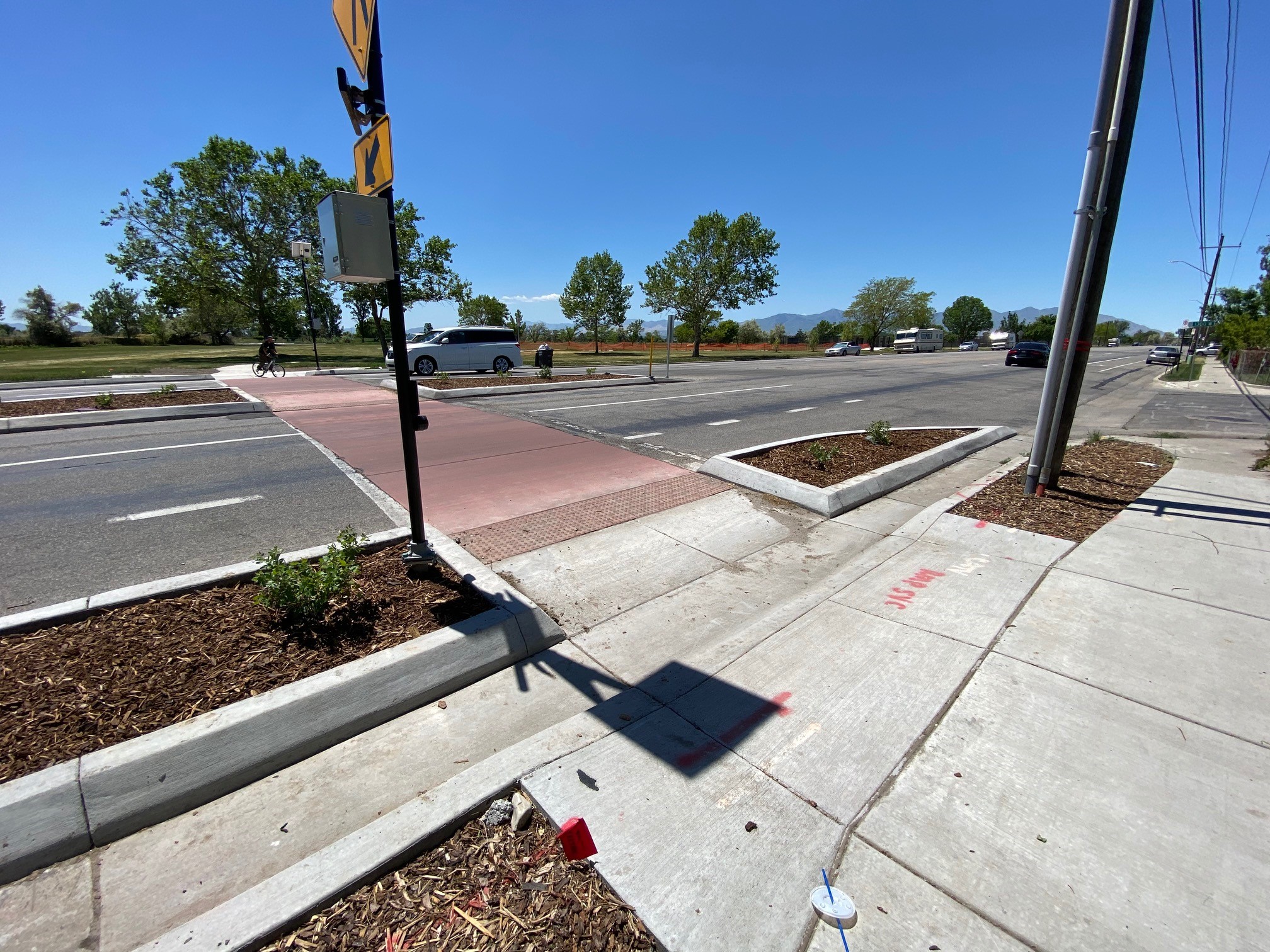
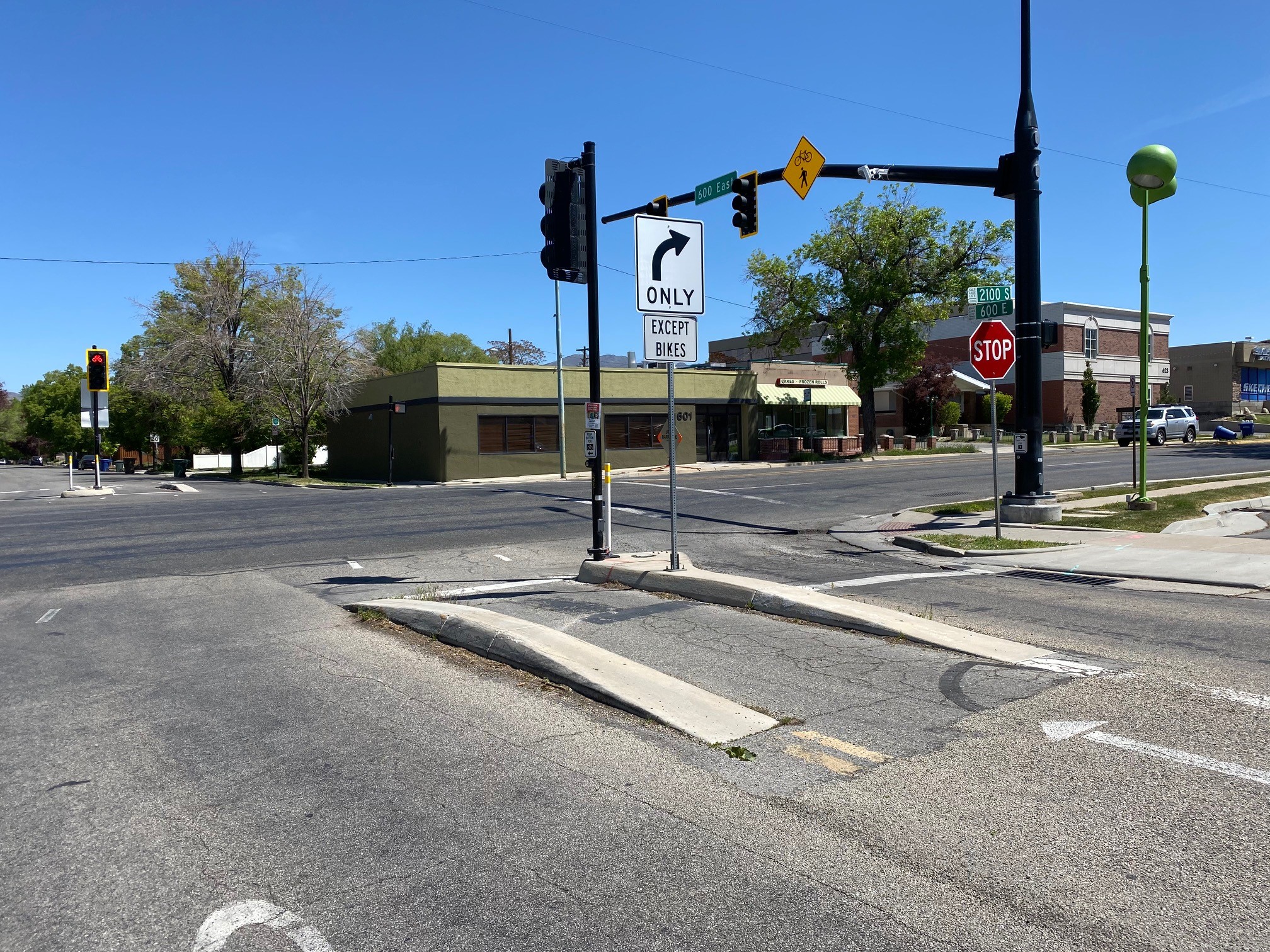
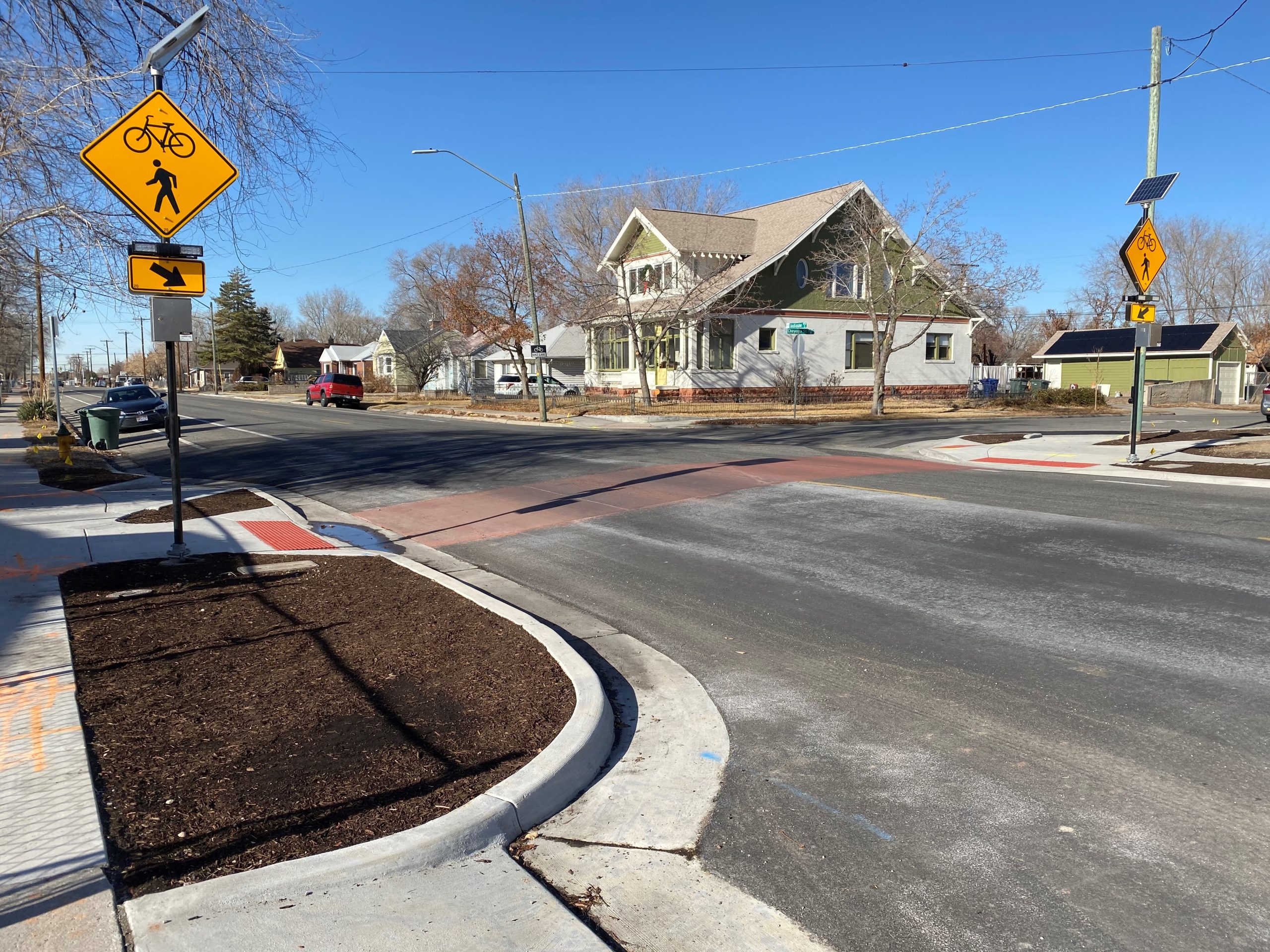
Contact Us
Stay in the loop by signing up for the Neighborhood Byways email list!
Project Manager | Will Becker
Email | byways@slcgov.com
